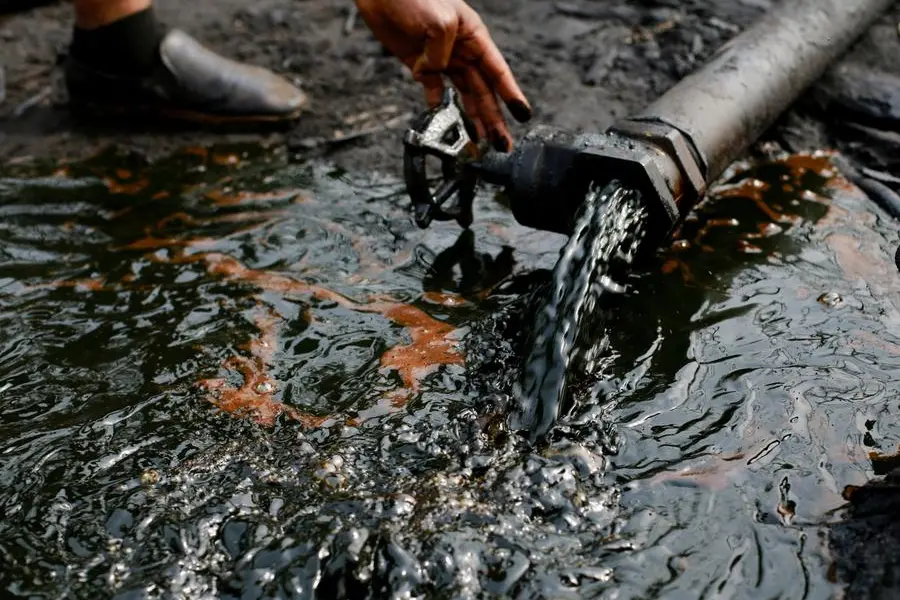PHOTO
LONDON - The International Energy Agency (IEA) has cut Nigeria's sustainable oil output by about 200,000 barrels per day (bpd), the agency said its July report, on the back of persistent technical issues and sabotage.
The IEA estimates Nigeria's new sustainable capacity at around 1.3 million bpd. The West African country's output has been steadily declining since 2019, in part due to the pandemic-related output cuts.
Sustainable output means the capacity level can be reached within 90 days and stay there for an extended period.
Nigeria combined with Angola accounted for nearly 40% of OPEC+'s 2.7 million bpd output target shortfall, the IEA said.
The Organization of the Petroleum Exporting Countries and its allies, known as OPEC+, targeted 43.2 million bpd in July.
Pre-pandemic, Nigeria's output fluctuated around 1.8 million bpd but state oil firm NNPC said in a monthly report that by April this year production had fallen to as low as 1.2 million bpd. Nigeria was supposed to return to 1.8 million bpd by July to meet OPEC+'s target.
"Nigeria has been striving for years to stop sabotage and oil theft – but seemingly to no avail," the IEA said in its monthly report, blaming a large part of the shortfall on the decline of two major crude grades.
Exports of one of Nigeria's mainstay grades, Bonny Light, has dwindled to negligible amounts. Shell has had force majeure in place on exports of Bonny Light since March this year.
Industry sources, including Shell, have pointed to skyrocketing levels of oil theft around the 200,000 bpd mark.
Bonny Light infrastructure has been the worst hit with one of its two main pipelines now empty.
The IEA estimated Bonny Light flows at about 30,000 bpd versus 220,000 bpd at the beginning of 2021.
Forcados flows have similarly dropped to about 50,000 bpd in July, the IEA said. The grade has been dogged by delays due to creaky infrastructure and most recently, a leak at the loading terminal on July 17 where repairs are still ongoing.
"Additionally, Shell has shut ... its EA oilfield due to water leaking into the facility. The 170,000 bpd Sea Eagle FPSO had recently been pumping about 35,000 bpd," the IEA said.
One bright spot was the production start-up of TotalEnergies' shallow water Ikike field that will add 50,000 bpd by year-end, the IEA said.
While Angola has also seen a steady decline in output over the last few years, unlike Nigeria, the country's production has stabilised at just under 1.2 million bpd.
(Reporting by Julia Payne, additional reporting by Ahmad Ghaddar, Editing by Jane Merriman)




















